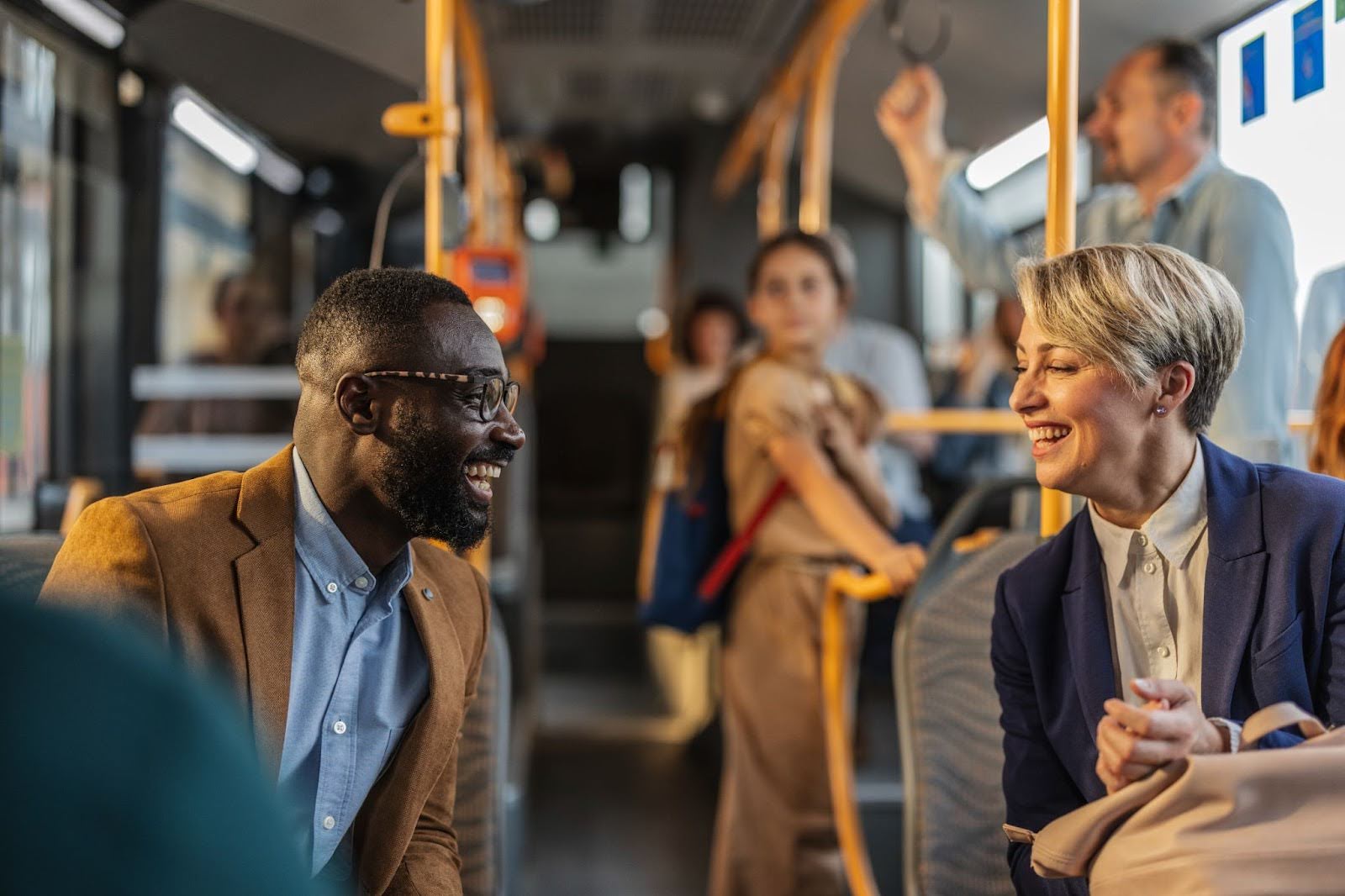☺️ Why Do Social Connections Matter So Much?
Recently, I heard an old song by Bill Withers (1972): Lean on me. And then the theme song from the show Friends by the Rembrandts– I’ll be there for you (1994).
These classic songs got me thinking about what they have in common – relationships. I haven’t written a newsletter about relationships in a while. And I realize I have missed the boat on that. Relationships are a cornerstone of flourishing in life – and since flourishing is the title of this newsletter, I thought I’d better get to it!
Relationships and social engagement are key aspects of human experience. Meaningful connections within ourselves and with others are important sources of so much in life – from joys to sorrows, love to hate, meaning to meaninglessness, engagement to disengagement– and all that we encounter among the ambiguities of our lives. During life’s challenges, relationships can be the tether that helps us stay connected.
The 85 year in-depth Harvard Study of Adult Development confirms that relationships are one of the most important components of a happy life (Waldinger, 2015). According to Robert Waldinger, MD, longitudinal evidence shows that people who build connections and relationships fare much better in life. For example, in retirement it’s the relationships with others that many people miss most when they leave their jobs (Schulz & Waldinger, 2023).
In his 2015 TED talk, Waldinger makes this noteworthy comment: “The clearest message that we get from this [85] year study is this: Good relationships keep us happier and healthier. Period.”
If you have not viewed Waldinger’s TED talk, it’s worth seeing. Here’s the link :

Life satisfaction is built on many pillars. Many positive psychologists use the acronym PERMA to note five measurable building blocks of wellbeing, which include: Positive emotions, Engagement, Relationships, Meaning and purpose, and Accomplishment (Seligman, 2011). Key among these elements is the R – relationships.
Even brief casual social interactions can boost wellbeing (Fredrickson, 2013). Researchers, Epley and Schroeder (2014), studied the experience of interacting with strangers. They conducted nine experiments in the laboratory and out in the real world, including asking commuters traveling on buses and trains to connect with strangers and start up a conversation. What they found was contrary to what we might have expected. People riding on a train to downtown Chicago and on a public bus reported more positive experiences when they talked to a stranger than when they sat alone in solitude. Other experiments have shown similar findings (Mallett, Wilson & Gilbert, 2008).
Here’s the bottom line. For many of us, striking up a conversation can be beneficial for our wellbeing, while loneliness and social isolation can be difficult and painful (Holt-Lundstad, 2017). Accumulating research suggests that we could improve our own wellbeing (at least in the moment) and also benefit others with even simple casual social interactions (Epley & Schroeder, 2014).
Humans are inherently social beings, and these findings offer important information to consider about the many benefits of social connection, And yet today many of us tend to avoid or dismiss brief casual interactions, not realizing their potential positives for the people involved.

💬 Would you like to increase your engagement in social interaction with others in positive, prosocial ways?
Here are 6 strategies:
- Greeting others. Perhaps starting up a brief conversation with a neighbor, someone at the store or coffee shop, the public library, a passerby as you walk in a safe place, someone you see at the gym.
- Talking to a colleague at work or a customer in your professional environment.
- Sharing an expression of gratitude with someone who has done something nice.
- Attending events at organizations, religious institutions, public centers, informal groups, or social situations.
- Joining a discussion group or a book group.
- Volunteering in a way that you find meaningful. For example: visiting someone who can’t get out easily, helping family or a friend with babysitting, donating your time at a religious and spiritual organization or a homeless shelter, helping others with errands or other tasks, driving a friend to a medical appointment, bringing food to someone who might benefit from it or simply appreciate it, or something else.
In this busy, crowded, challenging world, there are many ways we can engage in casual social interactions or develop more sustained relationships.
What about you?
Disclaimer: This article is for informational purposes only. No content is a substitute for consulting with a qualified mental health or healthcare professional.
© 2025 Ilene Berns-Zare, LLC, All Rights Reserved
Send your comments and suggestions to Ilene!
Click here or simply hit “Reply” to send Ilene an email with your thoughts about this newsletter.
References:
- Epley, N., & Schroeder, J. (2014). Mistakenly seeking solitude. Journal of Experimental Psychology: General, 143(5), 1980.
- Fredrickson, B.L. (2013). Love 2.0: How our supreme emotion affects everything we feel, think, do, and become. New York, NY: Hudson Street Press.
- Holt-Lunstad, J. (2017). The potential public health relevance of social isolation and loneliness: Prevalence, epidemiology, and risk factors. Public Policy & Aging Report 27(4), 127-130.
- Mallett, R. K., Wilson, T. D., & Gilbert, D. T. (2008). Expect the unexpected: Failure to anticipate similarities leads to an intergroup forecasting error. Journal of Personality and Social psychology, 94(2), 265
- The Rembrandts. (1994). I’ll be there for you. [Sound recording]. From the TV show Friends. Atlantic Records.
- Seligman, M. (2011). Flourish. New York, NY: Free Press.
- Waldinger, R. (November, 2015). What makes a good life? Lessons from the longest study on happiness. TED-X.
- Withers, B. (1972). Lean on me [Audio track]. Columbia Records.
Ilene is now on Bluesky Social! We invite you to join the conversation.
Ilene is a Featured Author on PsychologyToday!
Read her blog series Flourish and Thrive: Navigating transitions with mindfulness and resilience.

Have you recently shown kindness to yourself, a loved one, or a stranger?
Tap into your strengths, purpose, and potential to flourish in life and work.
If you’d like to discuss how Ilene Berns-Zare Coaching can help you achieve your goals, contact Ilene.
Coaching with Ilene Can Help You Call Yourself to Action
Ilene Berns-Zare, PsyD, PCC, CEC, is an Executive and Personal Coach and Speaker. Ilene helps people live their best personal and professional lives by bringing mind, body, and spirit into flow with strengths, purpose, and potential. She inspires clients to find fresh perspectives and access their full potential as creative, resourceful, whole persons. Find Ilene online, set up a free discovery coaching consultation, and access free resources at https://ibzcoaching.com/.
Please share this blog with anyone who might be interested in reading it!
We would love to hear from you! We are interested in your suggestions for this newsletter, your reactions to this one, or providing more information about coaching.



